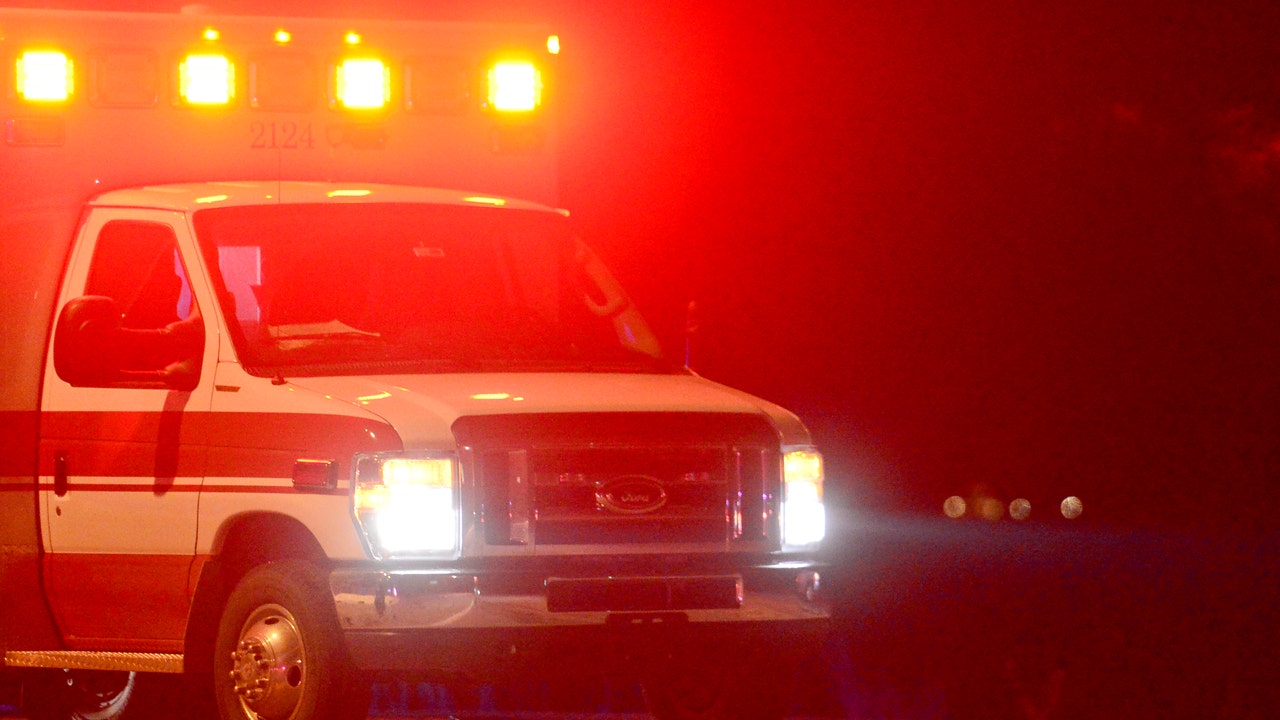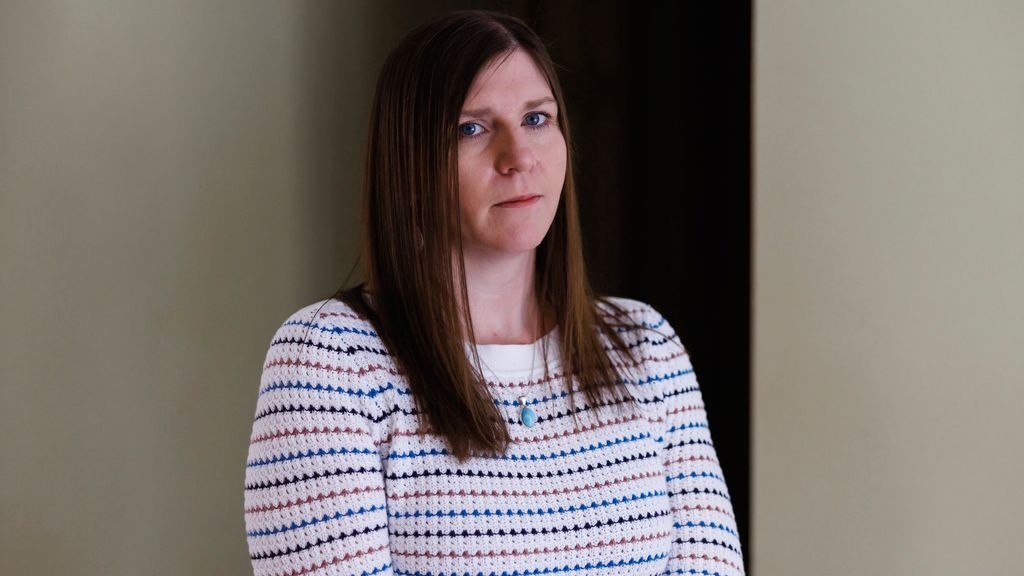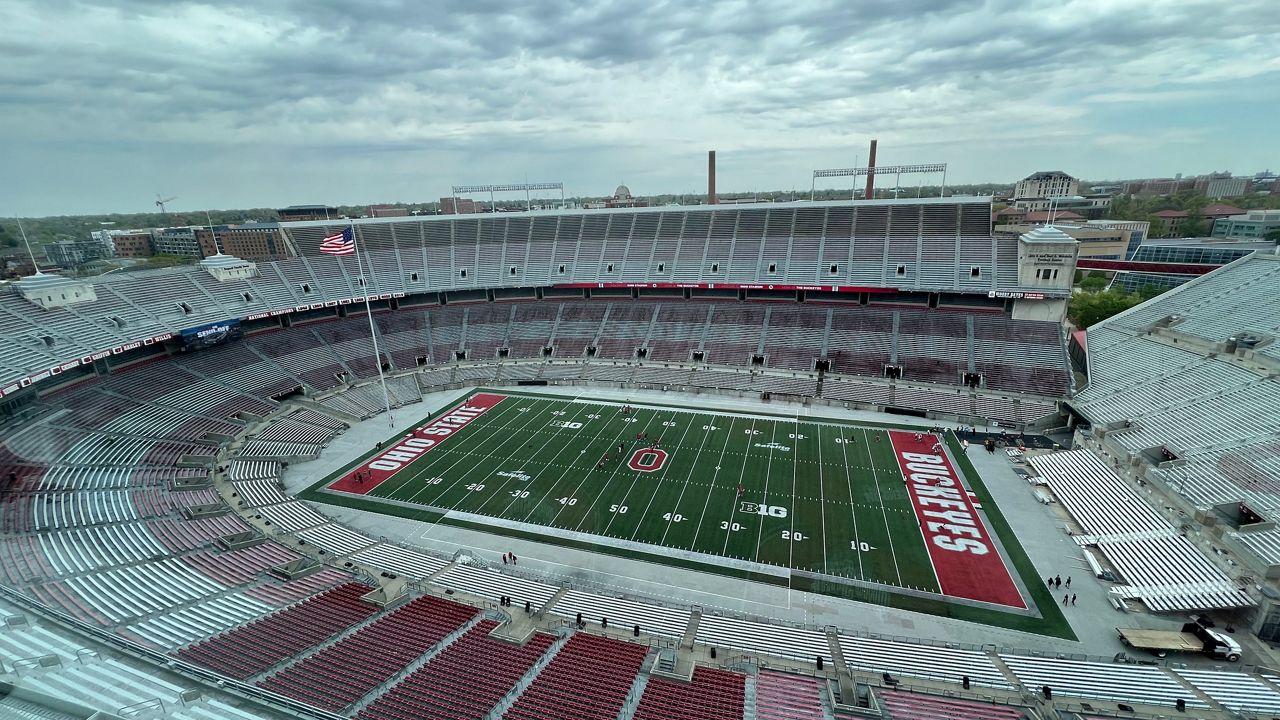Illinois
$1 million Illinois Lottery ticket sold at Rockford area business

An Illinois Lottery player has won $1 million with a winning Lucky Day Lotto ticket sold at a Loves Park gas station.
The winning ticket was purchased for the April 22 midday drawing at Fas Mart, located at 6010 E. Riverside Blvd.
Lottery officials said the winner, an Illinois woman who has remained anonymous, received the ticket as a gift and was shocked to learn it was a jackpot winner.
The winning ticket matched all five numbers. The winning numbers were 3-4-6-25-27.
More: Winning $500,000 scratch-off lottery ticket sold at Rockford grocery store
For selling the winning ticket, Fas Mart, will receive a selling bonus of one percent of the prize amount or $10,000.
The winner, according to lottery officials, plans to use her prize to buy a car. She also plans to give some to her grandfather, find a new place to live and save the rest.
So far this year, more than four million winning Lucky Day Lotto tickets have been sold, with total prizes amounting to more than $22 million.
Lucky Day Lotto is an Illinois-only game with twice daily drawings at 12:40 p.m. and 9:22 p.m.
Tickets for the game can be purchased in-store, online, or on the Illinois Lottery app.
For more information or to buy tickets online, visit IllinoisLottery.com.
Chris Green is a Rockford Register Star general assignment reporter. He can be reached at 815-987-1241, via email at cgreen@rrstar.com and X @chrisfgreen

Illinois
2024 list of Most Endangered Historic Places in Illinois released. Here’s what’s on it.
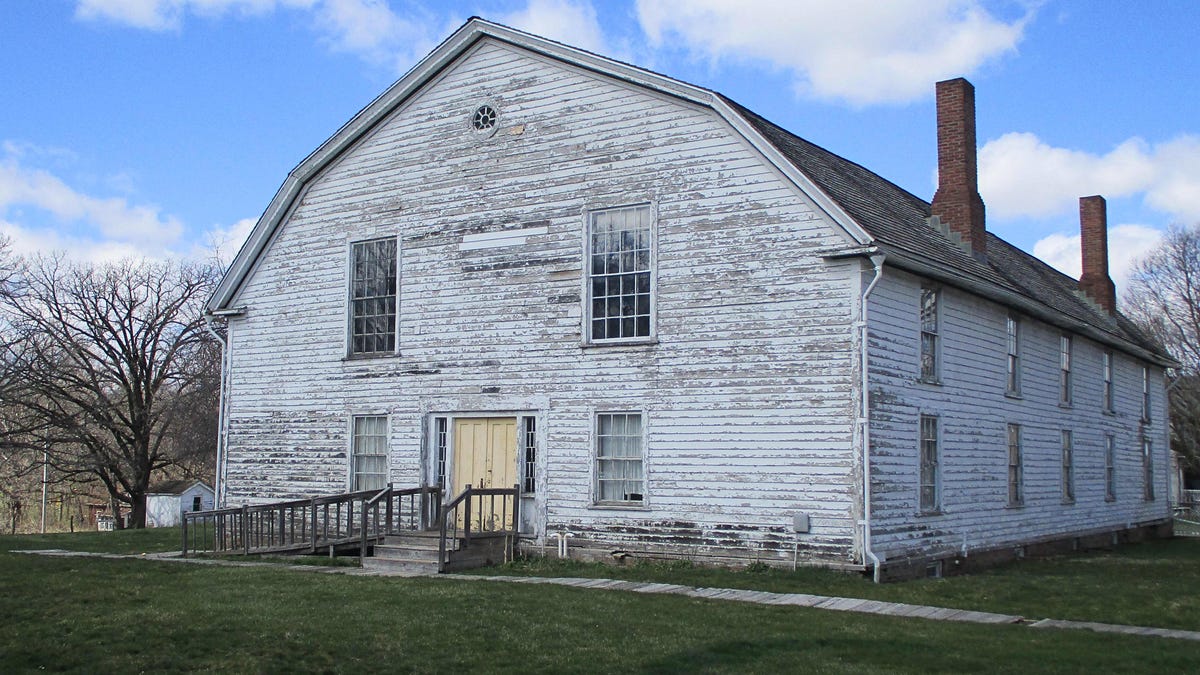
Landmarks Illinois has placed the Bishop Hill Colony Church along with nine other sites across the state on its 2024 list of Most Endangered Historic Places in Illinois.
The sites, announced during a Tuesday news conference, include historic homes, banks, places of worship, factories, theaters, office buildings, schools, courthouses and cultural centers.
“This year’s ‘Most Endangered’ sites are not only incredibly important places in their communities, but many are large-scale buildings that sit prominently in highly visible areas near city centers, in historic districts or on state-owned land. Their neglect is seen and felt,” Bonnie McDonald, president and CEO of Landmarks Illinois, said in a news release.
“Despite their current condition, these places tell important stories from our past — stories that should not be erased due to insufficient investment or general disregard for our collective histories.”
This year’s Most Endangered Historic Places are in Chicago, Blue Island, Bishop Hill, Golconda, Old Shawneetown, Collinsville, Decatur, East St. Louis and Vienna.
Landmarks Illinois’ annual list is meant to call attention culturally and architecturally significant places in Illinois that are in desperate need of preservation resources.
Bishop Hill Colony Church
Bishop Hill, Henry County: The Village of Bishop Hill is one of the earliest settlements of Swedish immigrants in the United States, established as a utopian religious community by Eric Janson and his followers in 1846 during the first wave of mass Swedish immigration. Many of the village’s original buildings have survived, including Colony Church (1848), Ox Boys’ Dormitory (1850) and Bjorklund Hotel (late 1850s). The area of the original settlement is a National Historic Landmark and is also designated as a State Historic site, administered by the Illinois Department of Natural Resources.
According to Landmarks Illinois, previous Illinois leaders have not allocated sufficient funds to address upkeep at the site, which has resulted in the need for several repairs. Colony Church has the greatest need. The church is need of a new roof, siding replacement, paint stripping and new paint, foundation work, replacement of rotting wood, new gutters and plaster repair.
Illinois State Sen. Neil Anderson, R-Andalusia, and State Rep. Travis Weaver, R-Edwards, have urged state lawmakers and Gov. JB Pritzker to set aside funds for critical repairs, and, with Tuesday’s announcement, Landmarks Illinois also is urging the state to provide the Department of Natural Resources with the money and resources to make the repairs and properly manage sites like Bishop Hill.
Buel House State Historic Site
Golconda, Pope County: The Alexander Buel House, constructed in 1840, is a state historic site with ties to the Trail of Tears. Like other Illinois State Historic Sites included on our 2024 Endangered List, the house suffers from deferred maintenance due to a lack of state resources. The state recently painted the exterior of the house, but other repairs are desperately needed, including urgent interior work.
Shawneetown Bank State Historic Site
Old Shawneetown, Gallatin County: Shawneetown Bank State Historic Site is home to the former Bank of Illinois, the oldest bank building in the state. Landmarks Illinois previously listed the landmark structure on the 2009 Most Endangered list due to insufficient maintenance. Today, it has fallen into further disrepair. As is the case with other Illinois State Historic Sites included on the 2024 Most Endangered list, budgetary concerns place this property in danger of continued neglect.
Libby, McNeill and Libby Building
Blue Island, Cook County: The former canning and bottling factory was built in 1918 for the Libby, McNeill and Libby company, the second-largest producer of canned foods in the country at the time. For decades, the factory was an economic engine for the community, employing hundreds of local residents and migrant workers, until it closed in 1968. The building is currently vacant and is beginning to decay due to a lack of reuse and proper maintenance.
Portage Theater
Chicago, Cook County: The prominent theater, completed in 1920 near Portage Park’s popular “Six Corners” area, has been an important cultural institution for the local community. However, it has suffered from deferred maintenance since fully closing in 2018. While the current owner has demonstrated interest in revitalizing the designated Chicago Landmark, long-term plans remain unclear and securing financing has been a challenge.
Sears Administration Building
Chicago, Cook County: Constructed in two phases in 1905 and 1914, the Administration Building served as office headquarters for the former retail giant, Sears, Roebuck and Co., until the 1970s. It is part of the company’s sprawling campus in the city’s North Lawndale neighborhood, a complex that is a designated National Historic Landmark and is a Chicago landmark district. The building has been on the market since the spring of 2023. And, unlike other buildings on the Sears campus that have been rehabilitated and adaptively reused, this one sits vacant and underutilized despite its potential.
Former Collinsville Township High School
Collinsville, Madison County: The former Collinsville Township High School welcomed generations of students between 1908 and 1982 and has had various uses since, but today sits empty and deteriorating in a prominent part of the Southern Illinois city. The current owner has plans to develop the building into affordable housing and has identified funding and tax incentives to do so. Local officials, however, oppose the project, which means that the school may continue to sit vacant indefinitely.
Decatur Masonic Temple
Decatur, Macon County: The Decatur Masonic Temple has served as an important community center in Decatur’s historic district since it was built in 1929. Throughout the past nearly 100 years, it has hosted cultural events and famous speakers like Eleanor Roosevelt and John F. Kennedy Jr. The building has suffered deterioration and does not generate enough income today to pay for proper maintenance, leading to expensive damages.
Former Lincoln School
East St. Louis, St. Clair County: Built in 1886 as a school for Black students, the historically significant building has survived the 1917 East St. Louis Race Riots and the widespread demolition seen in the Southern Illinois city during the mid-20th century. Despite its local importance and proximity to the city’s historic district, without a new use and proper investment, the school faces demolition.
Johnson County Courthouse
Vienna, Johnson County: Built in 1871, the Johnson County Courthouse was the oldest continually operating courthouse in Illinois before it closed in 2023. While a new county complex is being constructed to house county offices, the nationally landmarked courthouse was supposed to be repurposed for local businesses and other governmental work. However, it has sat vacant since September 2023 when a roof truss fractured. Until funding for permanent stabilization is secured, the future of the building remains uncertain.
The annual Most Endangered Historic Places in Illinois list is Landmarks Illinois’ largest and longest-running advocacy program. Launched in 1995, the annual list aims to boost advocacy efforts and build support for each property’s eventual preservation.
Illinois
LGBTQA+ nonprofit newspaper opens brick-and-mortar location in Springfield
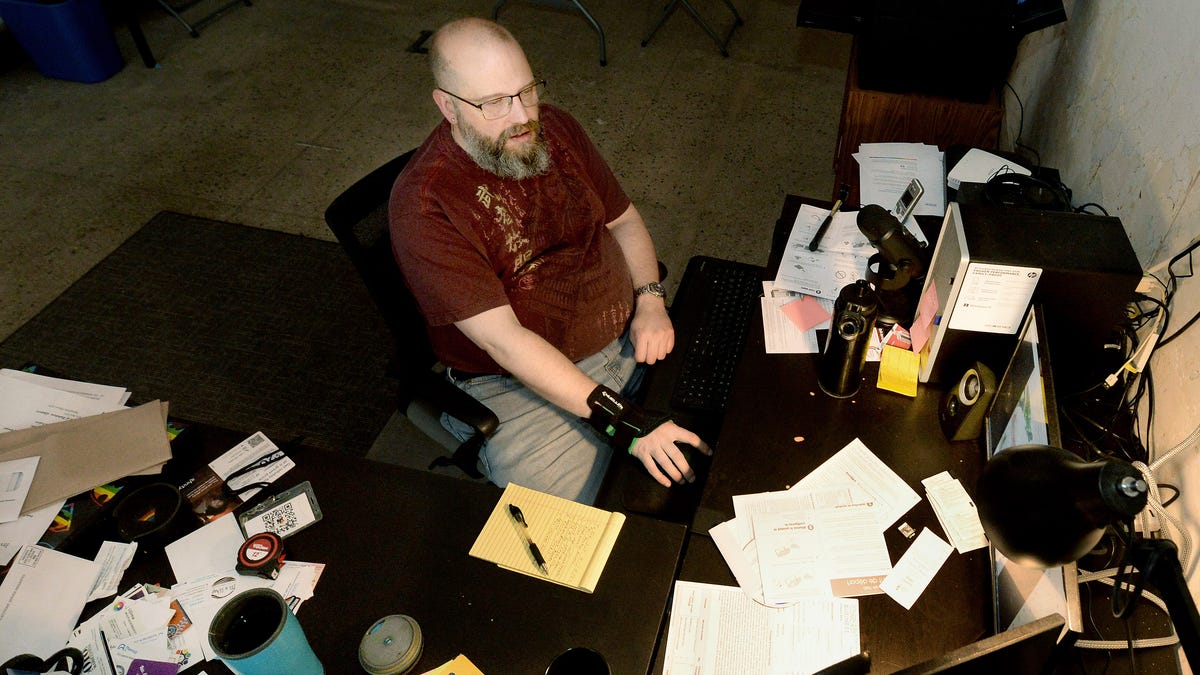
The Illinois Eagle, a LGBTQA+ nonprofit online newspaper, has opened its first brick-and-mortar location in Springfield.
Editor and publisher of the Illinois Eagle Tom Wray said it was time to expand the news organization to its own solid location and stop cluttering his living space with the news.
“Literally it was the past few years in the backroom of my house,” Wray said. “Either the house I rented, or the house I own now. It’s getting to the point I simply don’t have the room in my house anymore. I also needed the separation of working from my home; I already have ADD (Attention Deficit Disorder) and have to work at concentrating.”The new location for the online newspaper is the historic 1133 W. Governor St. which was previously the House + Garden reSource gallery home decor until owner Greg Pierceall relocated to 1220 W. Governor St. last year.
The building was originally built to be Springfield’s west-side Community Bakery over 100 years ago and now houses Stella Coffee and Tea to the left of the newspaper and Junk in the Trunk vintage to its right.
More: Could a result in an Alabama election impact Illinois? One abortion-rights group says yes
Wray is sub-leasing the building from Stella Coffee and Tea next door and still has lots of work to do but overall, the step forward for the paper is a major one.
“We haven’t had a grand opening or anything like that yet – a few friends have come in and said ‘ooh I love this look’ (in regards to the walls),” Wray said. “It’s literally patchy spackle and bare walls. They say it’s got a nice kind of vibe but I don’t want that vibe.”
Wray, 49, has over 31 years of journalism experience in Indiana and Illinois; he went to Franklin college Indiana, graduating with a bachelors of journalism and theater in 1995.
After graduating from college, Wray worked at a newspaper in Kokomo where the Ryan White case took place. White was a 13-year-old boy who was diagnosed with AIDS after a blood transfusion in 1984 and faced AIDS-related discrimination from his community. Congress passed the Ryan White Comprehensive AIDS Resources Emergency (CARE) Act in August 1990 after his death.
“When you’re a gay man in Indiana in the ‘90s and working in Kokomo … I had to actually interview the radio host who was one of the people who was (vocal against White) the most,” Wray said. “Some of the staff knew I was gay, I never told the editor – he found out. Then started to be a pattern of being … pushed out. I went from having a section to having a page and a half.”
According to Wray, it got to a point where he took the first job he could and moved to Chicago and fell in love with Illinois. After 23 years in the windy city where he started the Illinois Eagle, Wray needed a change of pace and decided to move to Springfield during the pandemic, as an accepting city he could fall in love with all over again.
To fund the newsrooms, Wray is applying for national grants like Press Forward, which strengthens communities by reinvigorating locally owned news outlets through donors.
A grand opening is scheduled to take place during Springfield’s PrideFest later this month.
Claire Grant writes about business, growth and development and other news topics for the State Journal-Register. She can be reached at CLGrant@gannett.com; and on X (Formerly known as Twitter): @Claire_Granted
Illinois
Illinois law prohibits parties from adding candidates to ballot

An Illinois law prohibiting political parties from adding new state office candidates who didn’t run in the March primaries to general election ballots went into effect Friday.
The law, which Gov. J.B. Pritzker signed into law Thursday, is applicable in cases where no candidate won the party’s primary. Prior to Friday, potential candidates who obtained the required number of signatures for their office could petition to be on the ballot.
The law also adds three non-binding referendums to the November ballot.
One asks voters if health insurance plans that provide pregnancy benefits should also be required to cover vitro fertilization and other fertility treatments. Another asks if the state should have a 3% tax on income that exceeds $1 million for property tax relief. The third asks if there should be civil penalties for candidates that obstruct or attempt to obstruct an election worker’s duties.
The legislation originally started as a child welfare bill amending the Children and Family Services Act, but the Democrat-controlled state House changed the bill extensively on Wednesday to add these election reforms.
The ballot access amendment was introduced by state Rep. Jay Hoffman (D-Belleville) and passed in the House mainly along party lines. The amendment passed in the Senate on Thursday.
Pritzker said the bill would eliminate the role of “backroom deals” when choosing general election candidates. But House Minority Leader Tony McCombie (R-Savanna) said she didn’t understand why the Democrats wanted to pass the amendment “unless the goal is to stifle the democratic process” at a Wednesday press conference.
Any candidates who were already petitioning to be on the November ballot can still run as independents.
Email: [email protected]
Email: [email protected]
X: @anavi_52
Related Stories:
— Evanston organizations work to increase voting
— Cook County primaries saw close races, low turnout
— Eileen O’Neill Burke wins State’s Attorney race
-

 News1 week ago
News1 week agoBoth sides prepare as Florida's six-week abortion ban is set to take effect Wednesday
-

 Politics1 week ago
Politics1 week agoGOP Rep. Bill Posey won't seek re-election, endorses former Florida Senate President as replacement
-

 World1 week ago
World1 week agoRussian forces gained partial control of Donetsk's Ocheretyne town
-
Movie Reviews1 week ago
Challengers Movie Review
-

 World1 week ago
World1 week agoZelenskyy warns of Russian nuclear risks on Chernobyl anniversary
-

 Politics1 week ago
Politics1 week agoHouse Republicans brace for spring legislative sprint with one less GOP vote
-

 World1 week ago
World1 week agoAt least four dead in US after dozens of tornadoes rip through Oklahoma
-

 Politics1 week ago
Politics1 week agoAnti-Trump DA's no-show at debate leaves challenger facing off against empty podium
